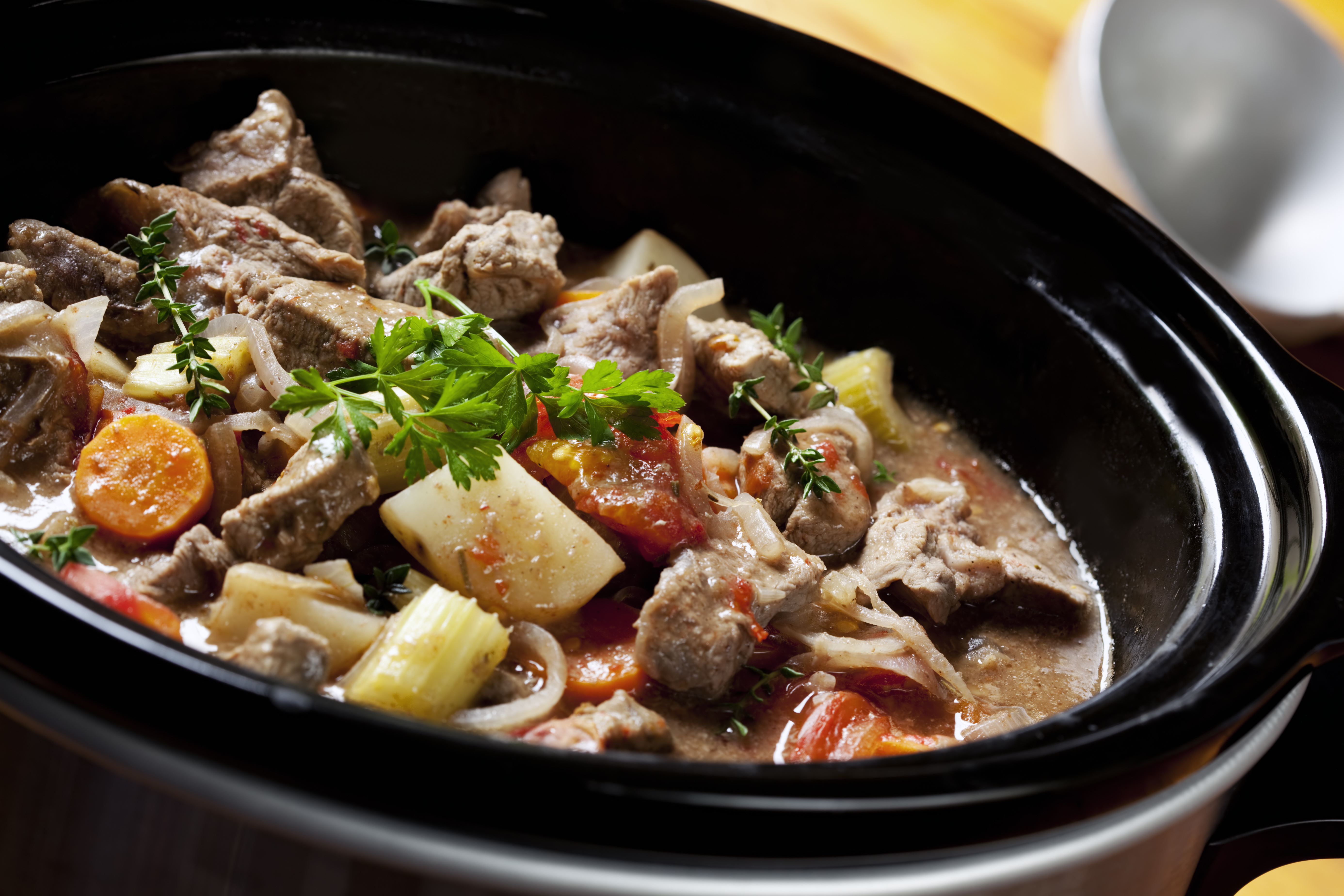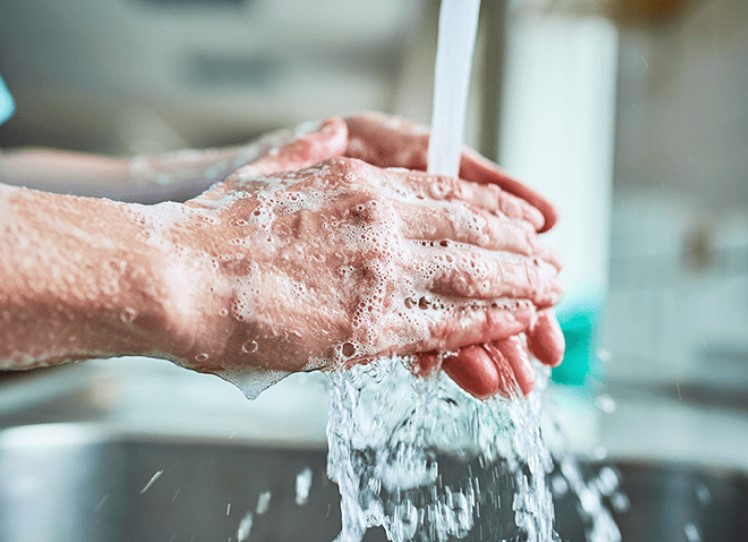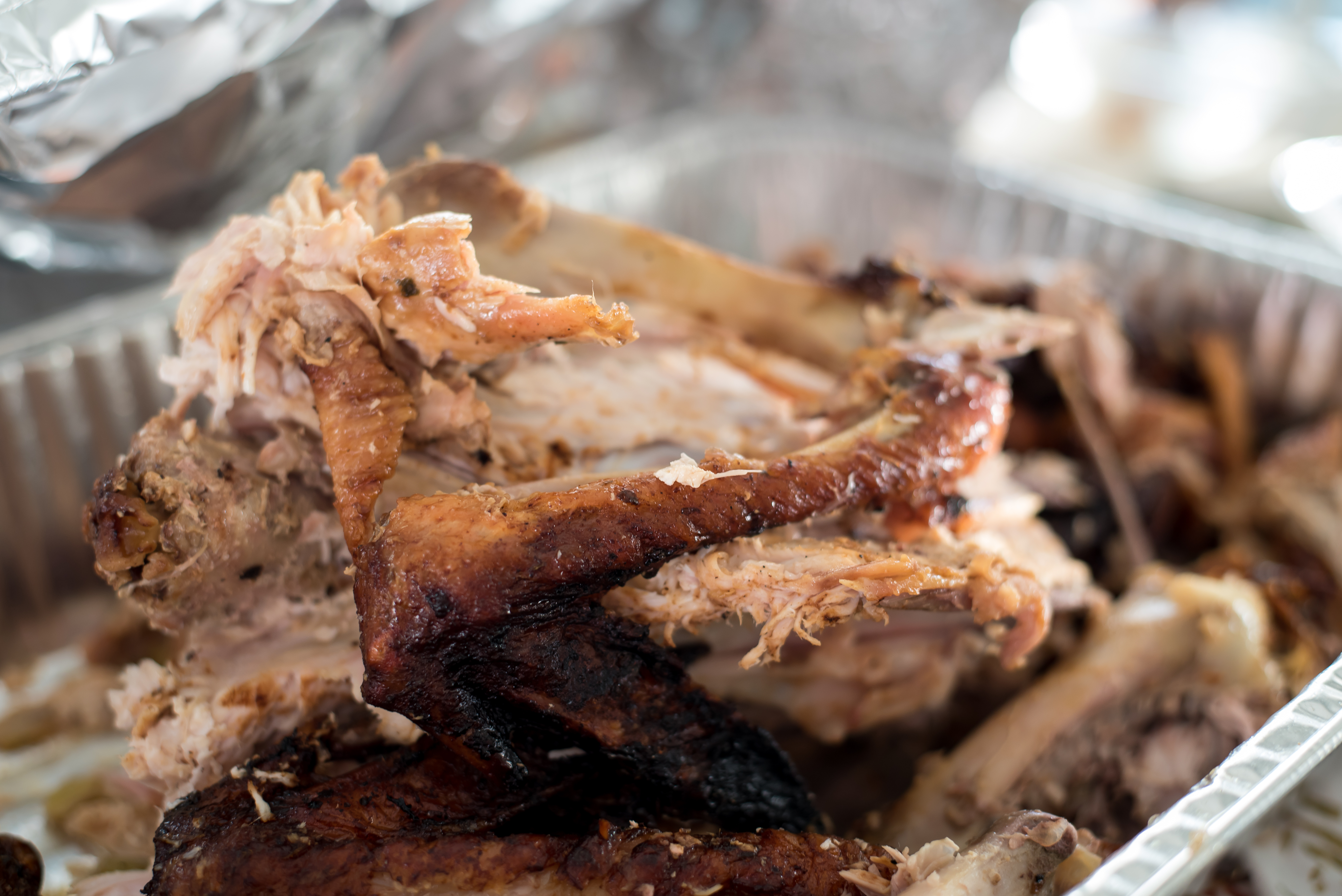
Cleanliness Helps Prevent Foodborne Illness

Food that is mishandled can lead to foodborne illness. While the United States has one of the safest food supplies in the world, preventing foodborne illness remains a major public health challenge. Prevent foodborne illness by following these four easy steps:
- Clean: Wash hands and surfaces often.
- Separate: Don't cross-contaminate.
- Cook: Cook to proper temperatures.
- Chill: Refrigerate promptly.
Cleanliness is a major factor in preventing foodborne illness. Even with food safety inspection and monitoring at Federal, State, and local government facilities, the consumer's role is to make sure food is handled safely after it is purchased. Everything that touches food should be clean. Listed below are steps we can take to help prevent foodborne illness by safely handling food in the home:
- Wash hands with warm, soapy water for 20 seconds:
- before and after handling food
- after using the bathroom
- after changing a diaper
- after handling pets
- after tending to a sick person
- after blowing your nose, coughing or sneezing
- after handling uncooked eggs, raw meat, poultry or fish and their juices
- If your hands have any kind of skin abrasion or infection, always use clean disposable gloves. Wash hands (gloved or not) with warm, soapy water.
- Thoroughly wash with hot, soapy water all surfaces that come in contact with raw meat, poultry, fish, and eggs before moving on to the next step in food preparation. Consider using paper towels to clean kitchen surfaces. If you use dishcloths, wash them often in the hot cycle of your washing machine. Clean other surfaces, such as faucets and countertops, with hot, soapy water.
- To keep cutting boards clean, wash them in hot, soapy water after each use; then rinse and air or pat dry with clean paper towels. Cutting boards can be sanitized with a solution of 1 tablespoon of unscented, liquid chlorine bleach per gallon of water. Flood the surface with the bleach solution and allow it to stand for several minutes; then rinse and air or pat dry with clean paper towels. Non-porous acrylic, plastic, glass, and solid wood boards can be washed in a dishwasher (laminated boards may crack and split). Even plastic boards wear out over time. Once cutting boards become excessively worn or develop hard-to-clean grooves, replace them.
- Don't use the same platter and utensils that held the raw product to serve the cooked product. Any bacteria present in the raw meat or juices can contaminate the safely cooked product. Serve cooked products on clean plates, using clean utensils and clean hands.
- When using a food thermometer, it is important to wash the probe after each use with hot, soapy water before reinserting it into food.
- Keep pets, household cleaners, and other chemicals away from food and surfaces used for food.
- When picnicking or cooking outdoors, take plenty of clean utensils. Pack clean, dry, wet and soapy cloths for cleaning surfaces and hands.
Because bacteria are everywhere, cleanliness is a major factor in preventing foodborne illness. By keeping everything clean that comes in contact with food, consumers can be assured they are helping to do their part to Be Food Safe.



